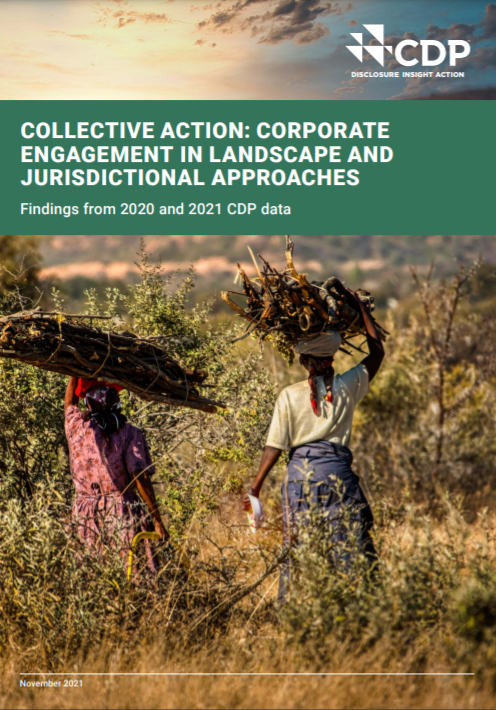Collective Action: Corporate Engagement in Landscape and Jurisdictional Approaches, Findings from 2020 and 2021 CDP data
This report discusses the status of corporate engagement with landscape and jurisdictional approaches (LA/JA) based on data from CDP, and the lessons learned from collaborations with key partners and stakeholders. The report examines the extent to which LA/JA are being used as well as CDP’s current disclosure findings and their future approach. Also the benefits and challenges of LA/JA and some successful examples from corporate operations in Brazil and Indonesia are reviewed.
In essence, there are six key takeaways from the report:
- LA/JA are holistic and integrated management frameworks gaining momentum due to their capacity to coordinate sustainable land use goals over a specific subnational area or in the landscape area.
- LA/JA create an opportunity to tackle complex socio-environmental issues collaboratively and scale-up company supply chain commitments with the common goals of a landscape/jurisdiction.
- The number of companies disclosing their engagement in LA/JA through CDP is increasing – by more than 70% (from 27 to 47) from the 2020 to 2021 disclosure cycle. However, understanding and clear engagement in LA/JA remain low and highly focused in a few geographic areas.
- Companies that engage in LA/JA for their high priority sourcing regions can minimize their risk, achieve their sustainability goals and build resilient outcomes.
- Successful LA/JA depends on multiple factors; key challenges to overcome include: a need for a long-term commitment from stakeholders to work together towards the collective goal, a lack of information available, the need of funding and the need for monitoring/reporting frameworks to generate market signals necessary to incentivise large-scale investments.
- It is necessary to develop clear guidance for companies specific contribution/attribution claims, to support the business case for investment in LA/JA.
